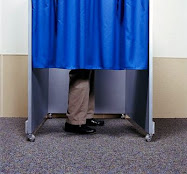By Shankar Vedantam
Monday, February 25, 2008
John McCain once called televangelists Pat Robertson and Jerry Falwell "agents of intolerance," but now the Republican senator from Arizona is currying favor with social conservatives. Sen. Hillary Rodham Clinton (D-N.Y.) now opposes the Iraq war, although she used to support it. Sen. Barack Obama (D-Ill.) once wanted presidential campaigns to be publicly financed but has come to have second thoughts, perhaps driven by the success of his own fundraising.
Such political two-stepping by these presidential candidates may surprise no one, but new psychological research reveals that voters may have less reason to question the sincerity of candidates' newly minted positions than was previously believed.
That is because, imperceptibly and often without their own awareness, politicians can come to believe what they tell voters, even if they start out being insincere.
The finding stems from a larger lesson that psychologists have observed. When a speaker talks to an audience, everyone understands she is trying to shape the audience's views. What is less known, but equally true, is that the audience shapes the speaker's views, too.
Columbia University social psychologist E. Tory Higgins found through experiments that when people are given a set of facts about an issue and asked to communicate them to an audience, they are more likely to deliver messages that match the audience's preexisting beliefs on that particular issue. Volunteers randomly assigned to speak to different audiences gravitate toward messages least likely to contradict and offend their listeners.
If you are talking to a die-hard Obama fan, in other words, you are more likely to mention things about Obama's debate with Clinton last week that paint the candidate in a positive light. If you are talking to a die-hard Clinton fan, on the other hand, you are more likely to mention Obama's shortcomings in the debate.
When Higgins debriefed his volunteers, he found their memories of the original facts were strongly influenced by what they had told their listeners. What surprised the psychologist is that over time, this "saying is believing" effect grew stronger -- meaning that more and more of the volunteers' recollections of the facts were accounted for by what they had said. Higgins concluded that as much as half of what people eventually come to remember about the original facts is based on the views they express to charm listeners.
"With politicians, that is one of the first things that struck me," Higgins said. "My God, politicians, of all people, do this all the time -- even more than the rest of us!"
In a new study published in the Journal of Experimental Psychology, Higgins and social psychologist Gerald Echterhoff at the University of Bielefeld in Germany showed that the "saying is believing" phenomenon is modulated by the strength of the relationship between speaker and audience.
When a speaker is trying very hard to build a powerful emotional connection with his listeners, he is much more likely to be influenced by this effect. All people's perceptions of reality are partially molded by their social interactions, Echterhoff said, but the effect appears to be especially strong when speaker and audience inhabit a shared reality -- when they share an intense bond with each other.
In a series of experiments, Echterhoff, Higgins and others showed that when people modulate their comments deliberately and with a clear ulterior motive, they are less likely to be influenced by "saying is believing," compared with when a speaker tries to make an emotional connection with the audience.
The research offers a window into the worlds of gifted communicators such as former presidents Ronald Reagan and Bill Clinton, politicians who could make every person in a crowded auditorium feel as though she were having an intimate conversation with just him. Both Reagan and Clinton came to be accused not just of fooling their audiences, but of regularly fooling themselves.
Higgins said that a candidate such as former Arkansas governor Mike Huckabee, a Republican social conservative who is mostly talking to social conservative voters, is more likely to be susceptible to the effect, because Huckabee is in powerful sync with his audience. On the other hand, Republican front-runner McCain is trying to speak to many conservative constituencies at once and is therefore less likely to connect intensely with any group.
On the Democratic side, Higgins added, the attributes that make Obama a compelling "movement" leader also make him more susceptible to "audience tuning" -- the phrase the researchers use to describe how the arrow of influence between speaker and audience can fly in both directions.
"Hillary is trying to have an audience see her as someone who can solve problems and knows how to take care of these problems," Higgins said. "Whereas Obama wants to connect one-on-one as a relationship -- as if we were friends. It is powerful when he does that, but he could be more open to the 'saying is believing' effect."



















